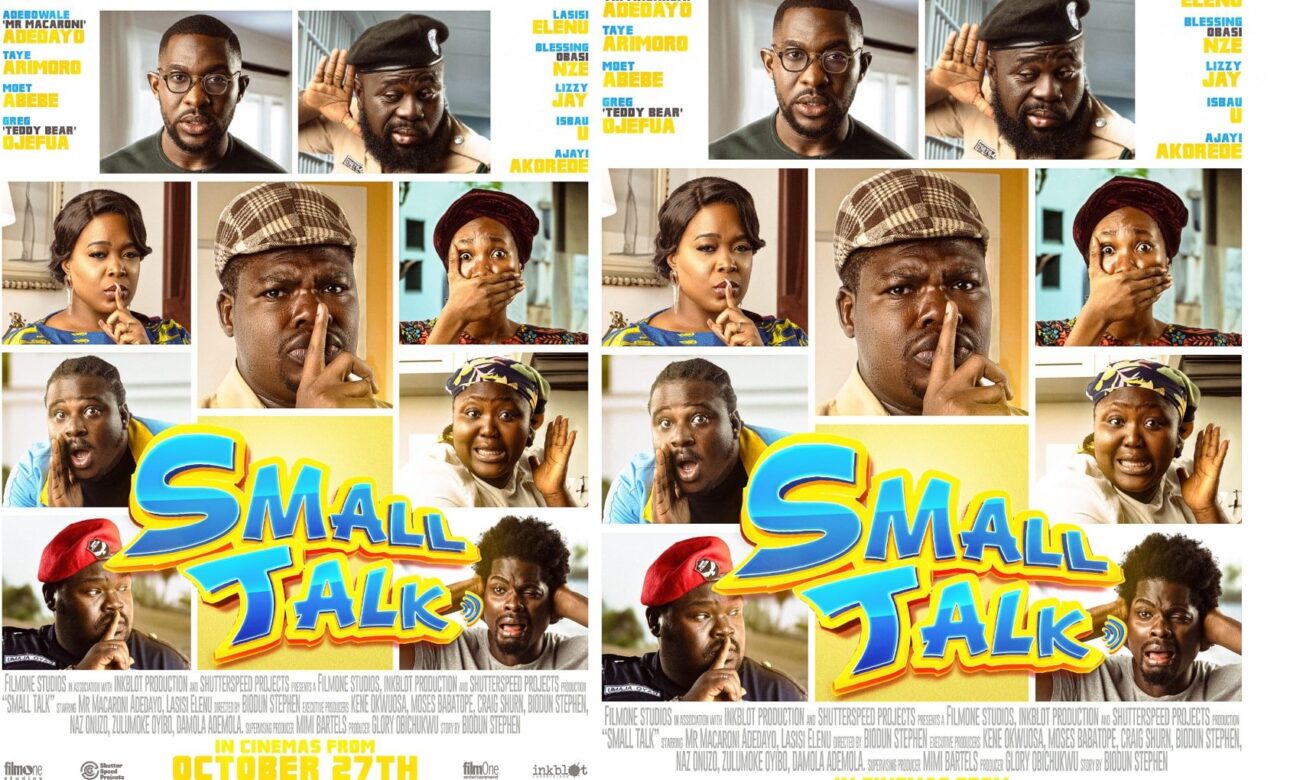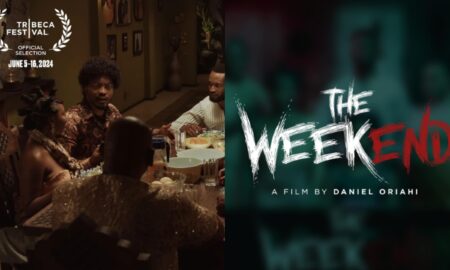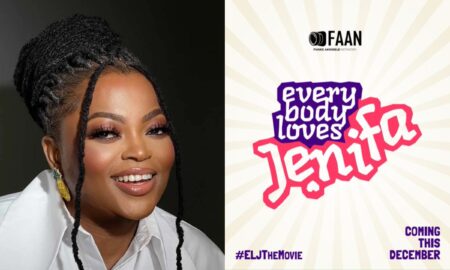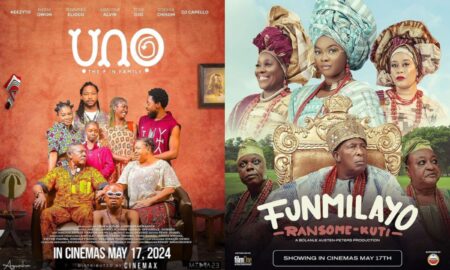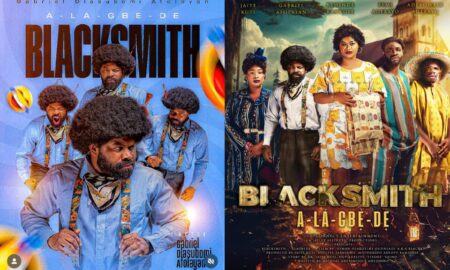Small Talk, the brainchild of producer Glory Obichukwu and director Biodun Steven, made its cinematic debut on October 27th in cinemas, promising an engaging narrative. However, the film left us pondering whether it truly belongs on the big screen of the cinema.
The storyline of the movie is good, but then it would have been great on Netflix, Amazon Prime, or some other streaming platform because there was nothing particularly spectacular about it apart from its good theme and comedy.
It’s not all movies that should be moved to the cinema.
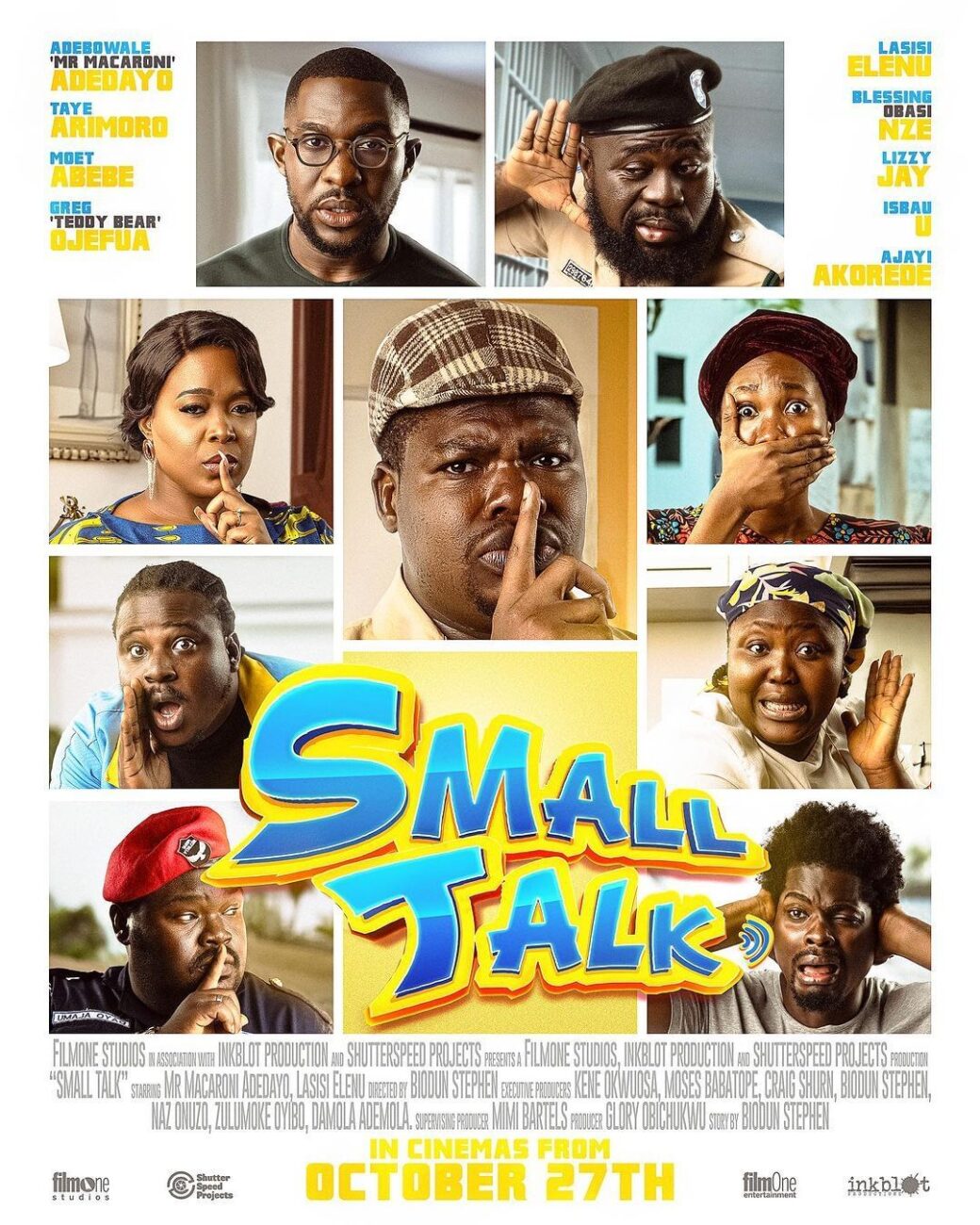
Featuring an ensemble cast, including Timilehin Ojeola, Mofe Okorodudu, Moet Abebe, The Korexx, Isbae U, Debo “Mr. Macaroni” Adedayo, Blessing Nze, Taye Arimoro, Greg Ojefua, Lizzy Jay, and Lasisi Elenu, among others.
The movie, which is set in Lagos, revolves around the effervescent driver, Baba Dee, played by Mr Macaroni, who, through idle chatter, inadvertently discloses his boss’s arrival time at the airport and valuable items the boss possesses in the house.
What begins as jovial small talk takes a perilous turn as the boss and his wife fall prey to cunning robbers, setting off a chain of chaotic events.
The cast excels in their roles, particularly Lasisi Elenu’s portrayal of Police Officer Emmanuel Okoh, who lived in Massachusetts previously and has convincingly assumed an American accent and mannerisms. He is tagged as the officer with the fake accent, but he did a great job as if he was really a cop from the States.
Mr. Macaroni, who played the role of Baba Dee did a good job with his role as a jovial talkative driver, he acted in different scenarios so well, especially towards the end when the Boss had to terminate his appointment, that scene was so good and emotional, it could pull viewers’ heartstrings, even though it was just acting.
The film’s central theme hinges on the hazards of excessive chatter, offering a valuable lesson on the importance of choosing one’s words wisely. Unfortunately, the film, even though a comedy overindulges in exaggerated, unnecessary scenes, especially during the police interrogations by Officer Emmanuel Okoh.
While Small Talk conveys its message effectively, certain sequences appear unreal to us, somewhat undermining the narrative’s impact. Now we know it’s a comedy movie, but then there were scenes that did not just seem real to us, the physical interrogation of Baba Dee’s character, where he got beat up by Inspector Okoh, did not look real.
When the culprit responsible for the robbery, played by Isbae U got apprehended, his arrest was rushed, it did not look real, and at a point, he was still jokingly going on about being hungry, maybe it’s because it’s a comedy, but then that particular scene seemed like a joke in itself. S
eriously, it’s not every movie that should be run by the cinema; while it passes a great message and the storyline is good, the movie is not particularly spectacular.
One downer we experienced during the movie was technical glitches, including audio-visual synchronization issues that, at a point in time, the audio and visuals were no longer in sync, the words of the character became faster than the actions of the characters, now we do not know if the glitch was from the cinema or the movie, but then it was a downer that disrupted viewers’ experience.
Visually, the film thrives in cinematography, production, set design, costume, and effects, but the plot, despite its potential, lacks the depth and excitement required for a cinematic experience.
In conclusion, Small Talk delivers a poignant message about the perils of reckless talk. However, its execution falls short of cinema standards. The film seems more suited for streaming platforms like Netflix or Amazon Prime.
From us at Kemi Filani, it’s a t 6.4/10 for Small Talk, emphasizing the importance of choosing the right stage for narratives.

